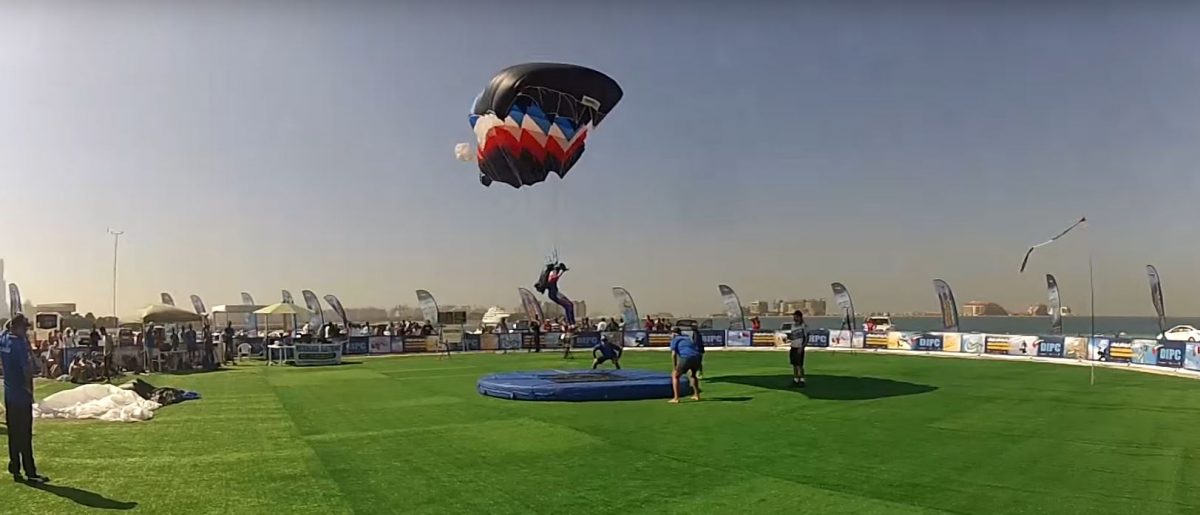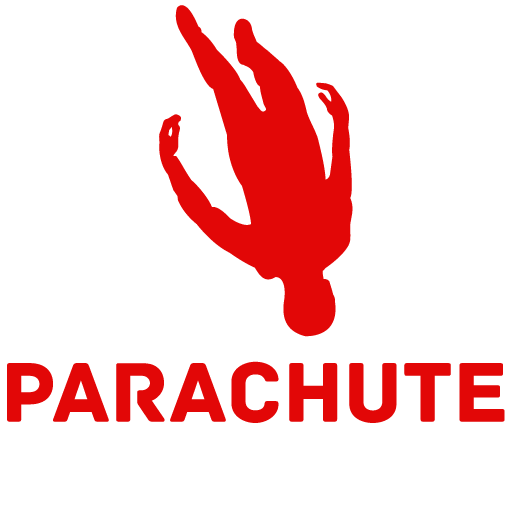Skydiving is much more than jumping out of a perfectly good air plane. Here you will find a number of disciplines related to skydiving.
Formation Skydiving (FS)
The formation skydiving consists of making figures in free fall. Skydivers (2 or more jumpers) must make “points” previously determined. This discipline is among the most practiced in the world of skydiving. The obtaining of the A-licence is compulsory in order to be able to fly in relation to two jumpers. The B-license is required to be able to fly with three or more jumpers. The concept of formation skydiving is to fly in relation to one or more other persons. It can be carried out horizontally (conventional formation skydiving), vertical (vertical formation skydiving), mixed or 3D (vertical and horizontal at the same time), with other canopy skydivers (CREW for Canopies Relative Work ), Or relative to objects of other nature in extreme relative flight (XRW).

Freefly
The Freefly discipline consists in making different figures in free fall other than flat belly. The skydivers who practice this discipline thus make figures with the head up (standing), the head down, sitting (sit fly), etc. This discipline is increasingly popular with skydivers, since it allows them to feel new sensations and to locate themselves in space.
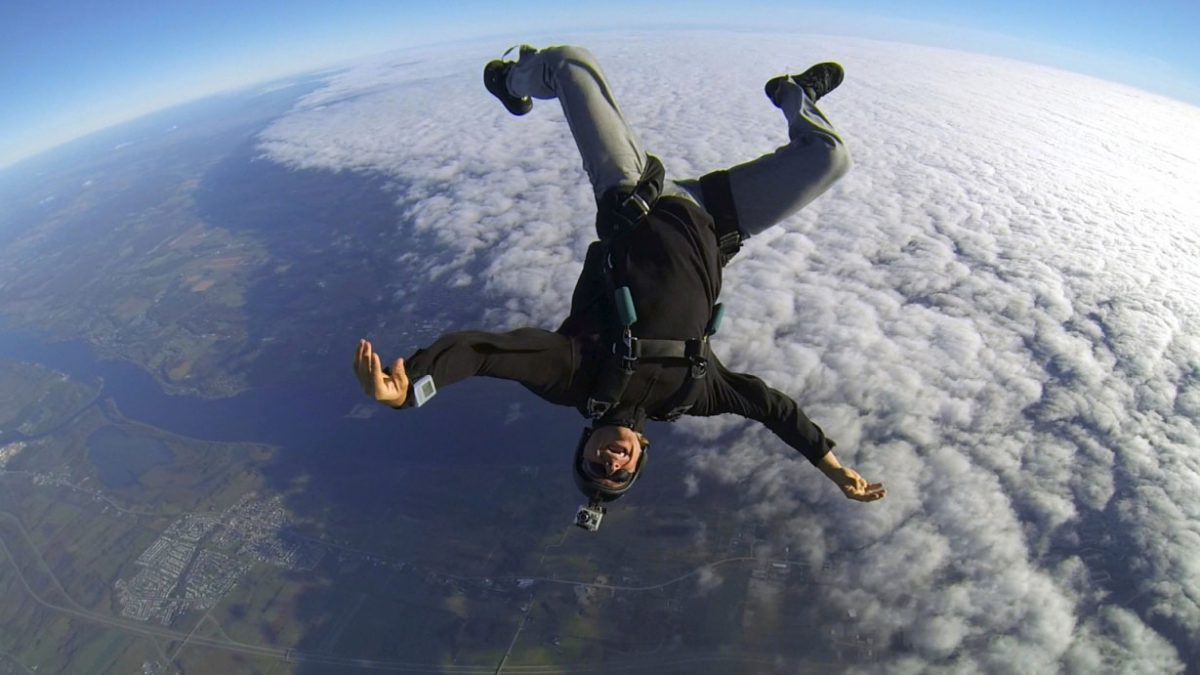
Canopies Relative Work (CREW)
The Canopy Relative Work consists of performing different figures once the parachute is opened. The skydivers hang their feet on the canopy of their jumping partners, creating a real show for people on the ground.
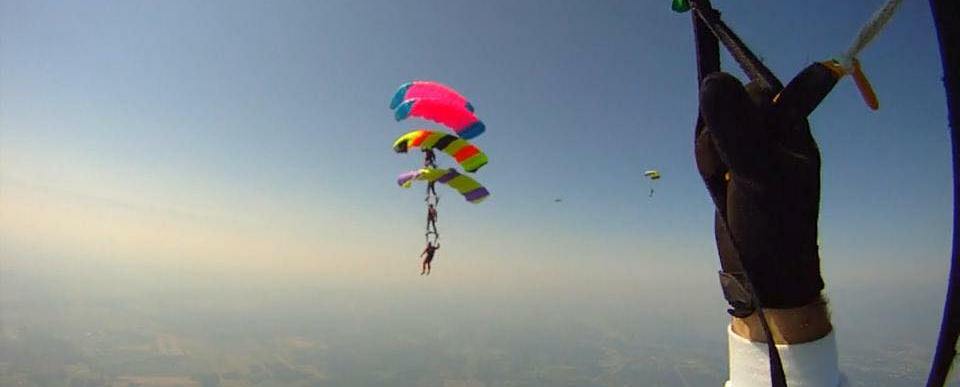
Wingsuit
The Wingsuit consists of moving from a falling movement to a flying movement. To do this, skydivers who are practicing this discipline wear a winged and supple suit similar to the body of a flying squirrel. As soon as the aircraft leaves, the skydiver’s combination fills with air, allowing the jumper to slow down. The falling speed thus contains a horizontal component greater than the vertical component and the flight is more like the movement of an airplane.
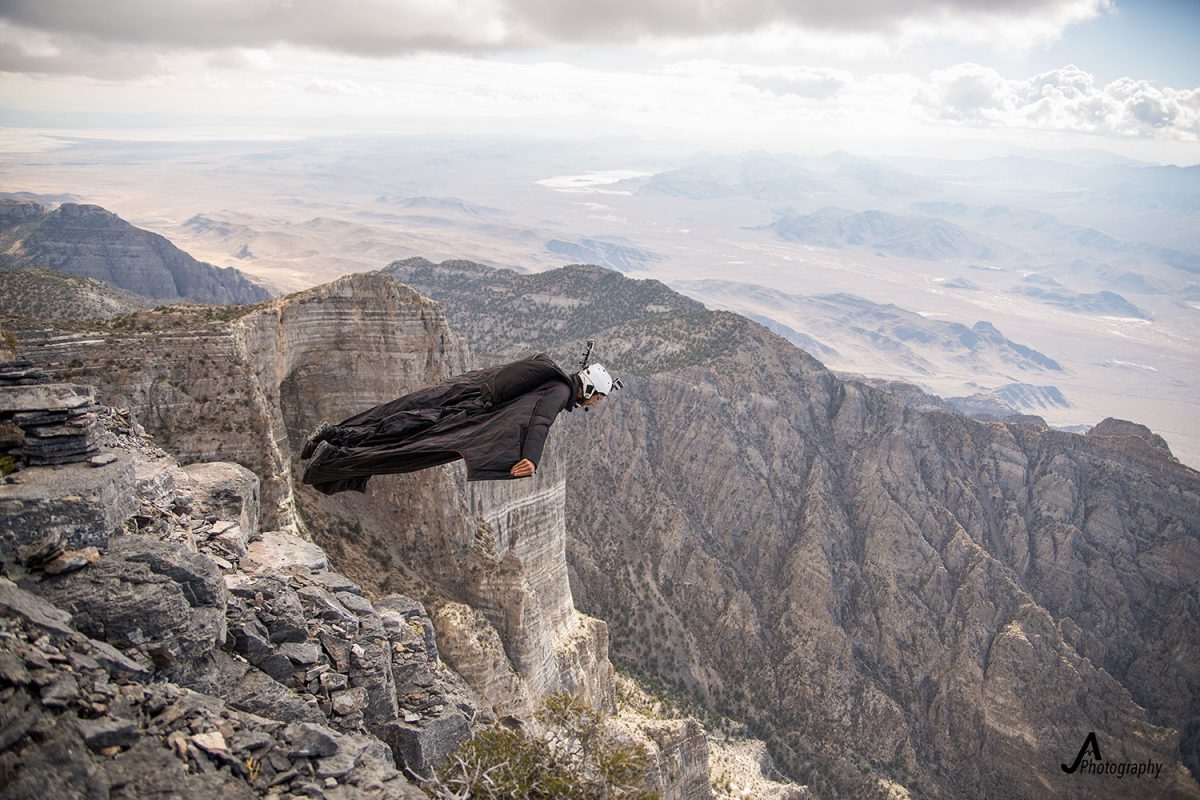
Canopy piloting (Swooping)
Swooping is practiced under canopy at landing. This discipline consists of a low turn under the canopy, allowing the skydiver to take a lot of vertical speed. At the moment of landing, the vertical speed is transformed into horizontal speed by the jumper, allowing him to slide as far as possible on the ground. Swooping is a discipline that requires an excellent knowledge of canopy piloting and a complete mastery of canopy steering, since it requires extreme precision.
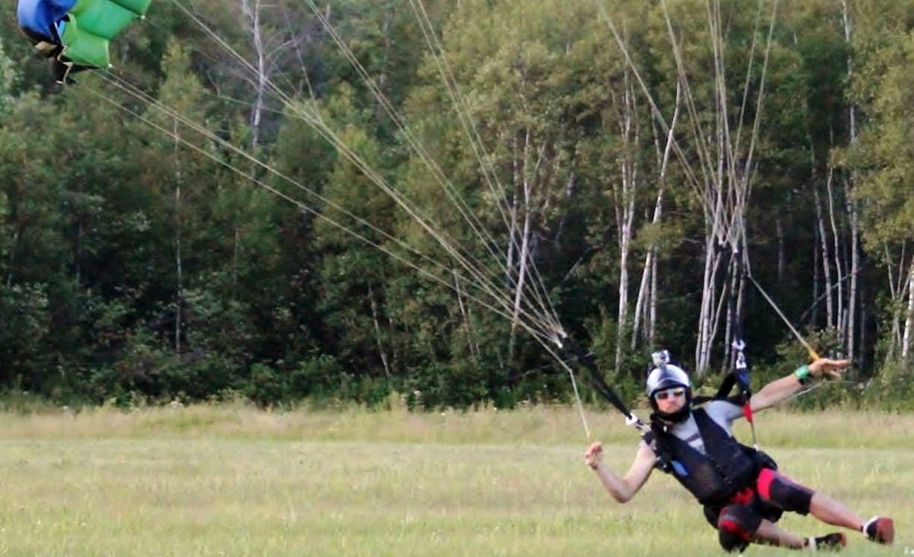
Vertical or mixed relative flight
Vertical or mixed relative flight consists of a relative flight with the body vertically or with persons in different (mixed) positions. Skydivers practicing this discipline must make pre-determined figures by clinging to the other jumpers in free fall.
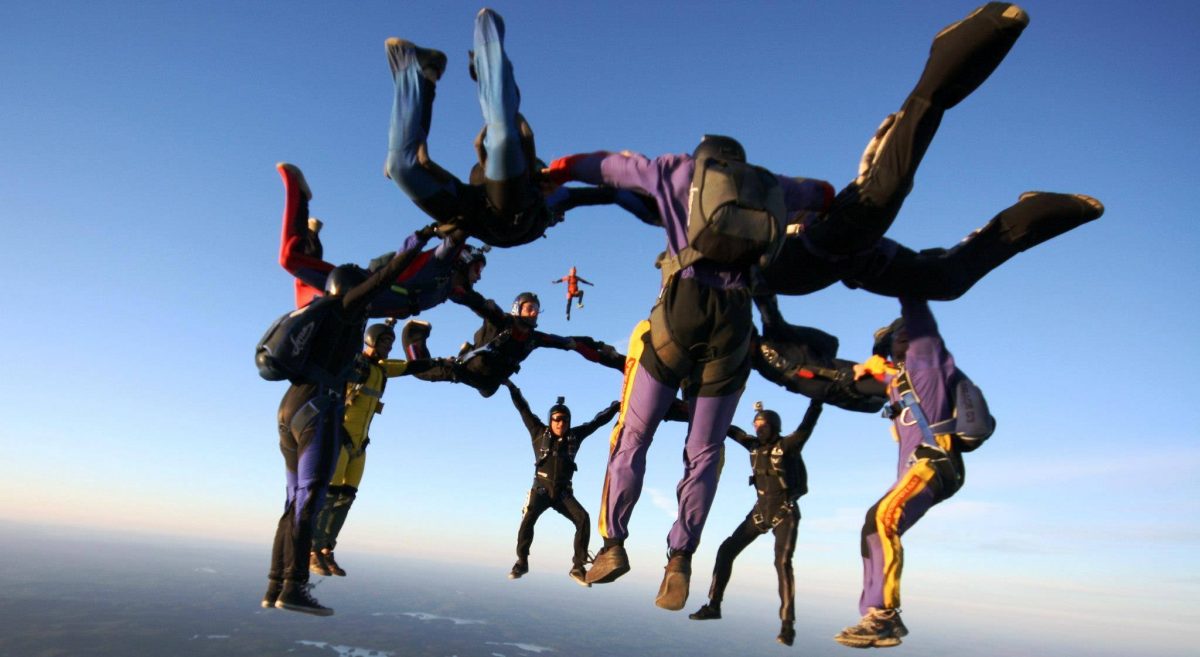
Artistic FreeFly
The Artistic Freefly consists of performing a pre-determined aerial choreography. The jumpers perform movements according to a precise rhythm. This discipline allows skydivers to express themselves artistically during their jump, creating a fabulous aerial spectacle!
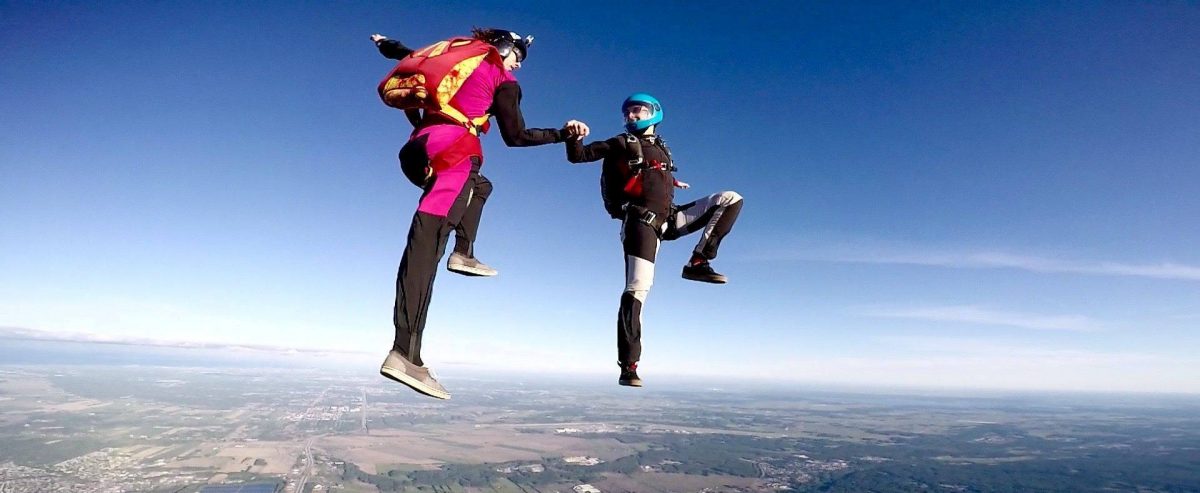
Freestyle
Freestyle consists of performing figures in free fall according to a precise sequence. Figures made by skydivers are figures that are usually practiced by gymnasts or trampoline athletes.
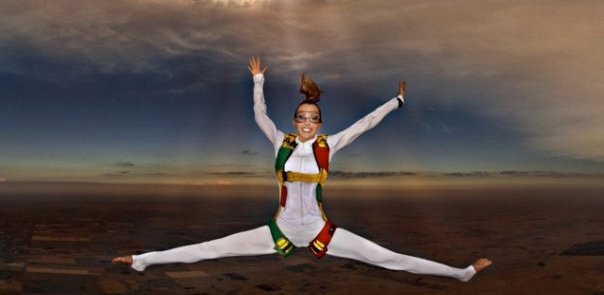
Extreme Relative Flight (XRW)
The extreme relative flight is gaining momentum in the world of skydiving. It consists of marrying the flight in free fall with the flight under canopy. Thus, a high-performance canopy can reach flying speeds compatible with winged skydivers and fly in formation together.
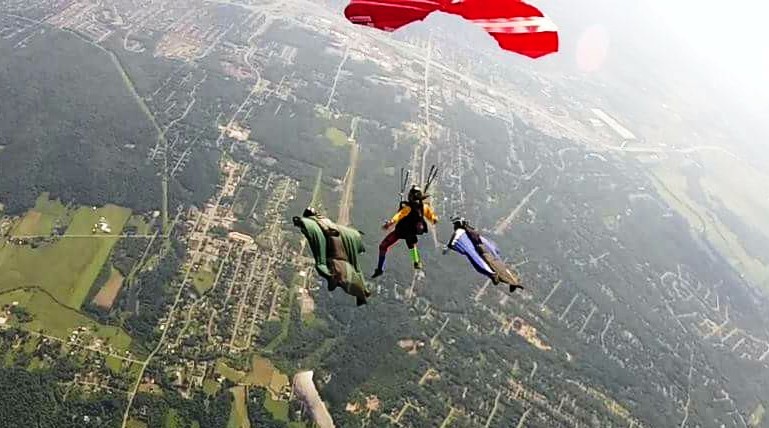
Precision landing
This discipline consists of landing as accurately as possible with respect to a target on the ground. The distance is thus measured in centimeters, see in millimeters. It is a discipline that has become less and less popular, but has helped to promote sport.
